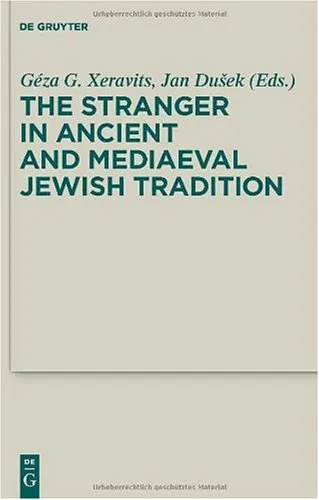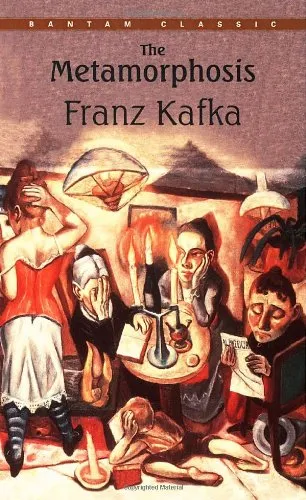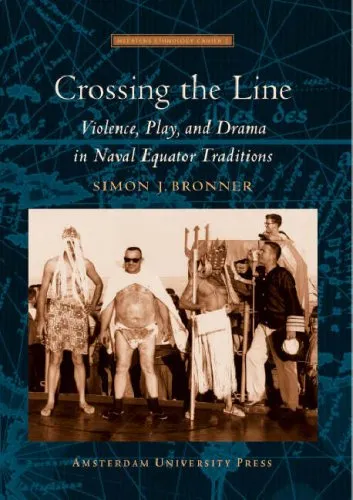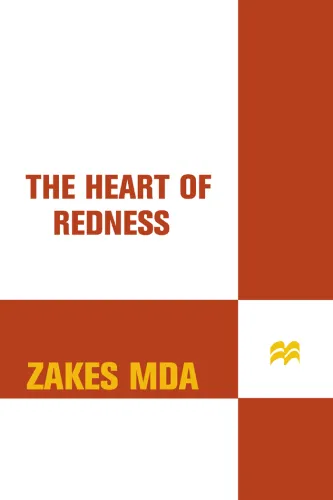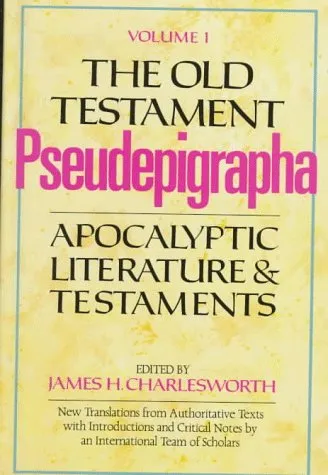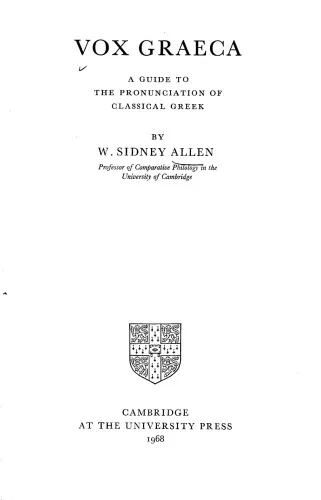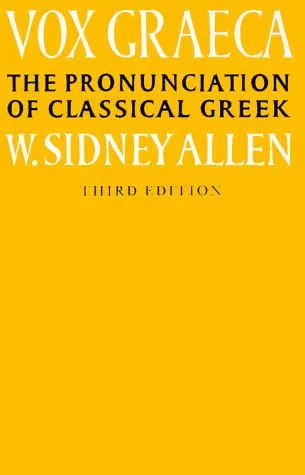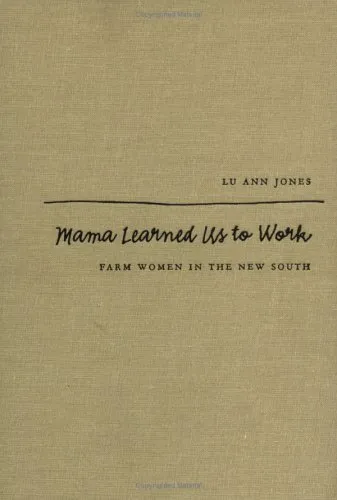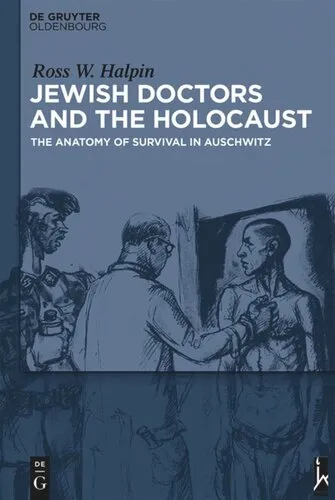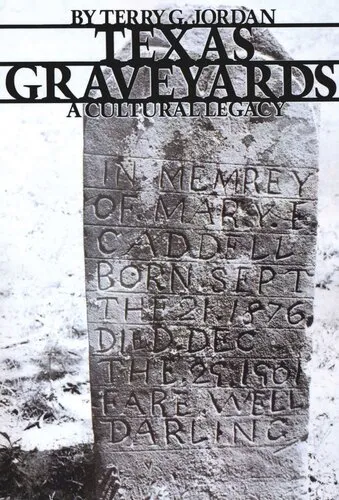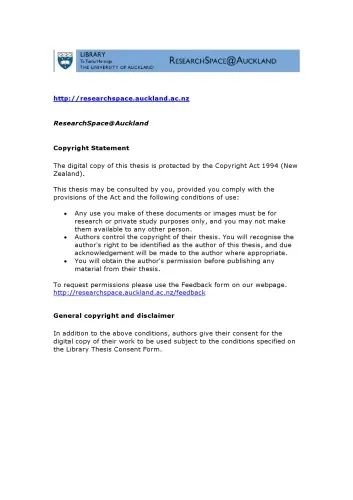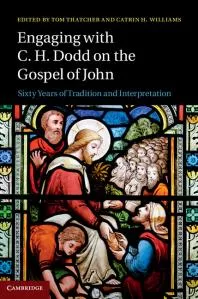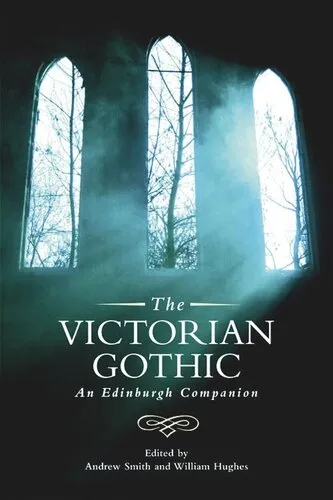The Stranger in Ancient and Mediaeval Jewish Tradition: Papers Read at the First Meeting of the JBSCE, Piliscsaba, 2009 (Deuterocanonical and Cognate Literature Studies, v.4)
4.6
بر اساس نظر کاربران

شما میتونید سوالاتتون در باره کتاب رو از هوش مصنوعیش بعد از ورود بپرسید
هر دانلود یا پرسش از هوش مصنوعی 2 امتیاز لازم دارد، برای بدست آوردن امتیاز رایگان، به صفحه ی راهنمای امتیازات سر بزنید و یک سری کار ارزشمند انجام بدینکتاب های مرتبط:
مقدمه ای بر کتاب
کتاب "The Stranger in Ancient and Mediaeval Jewish Tradition: Papers Read at the First Meeting of the JBSCE, Piliscsaba, 2009 (Deuterocanonical and Cognate Literature Studies, v.4)" اثری مهم در زمینه مطالعات یهودی است که به بررسی مفهوم 'غریب' در سنت های باستانی و قرون میانه یهودی می پردازد. این اثر نتیجهی همایشی است که در سال ۲۰۰۹ در پیلچکابا برگزار شد و مجموعهای از مقالات از پژوهشگران برجسته را شامل میشود.
خلاصهای مفصل از کتاب
کتاب بررسی مفهوم غریب، نقش و جایگاه افراد غریبه در جوامع یهودی را از دریچههای تاریخی، اجتماعی و مذهبی مورد تحلیل قرار میدهد. مقالات گردآوری شده در این مجموعه، که توسط پژوهشگران مختلف از سراسر جهان ارائه شدهاند، به بررسی مسائل همچون تحول دیدگاهها نسبت به غریبهها، روابط میانفرهنگی و دین و نقش متون دینی در شکلگیری این دیدگاهها میپردازند.
نکات کلیدی
- نقش و جایگاه غریبهها در جامعه یهودی و تأثیر آن بر تحولهای فرهنگی و مذهبی.
- تحلیل دقیق متون Deuterocanonical و نحوه تاثیرگذاری آنها بر دیدگاهها نسبت به غریبهها.
- روشهای مختلفی که جوامع یهودی تجربه ملاقات و تعامل با غریبهها را مدیریت میکنند.
جملات معروف از کتاب
"در درک جامعهی یهود، غریبه نه تهدید است و نه فقط میهمان؛ بلکه او بخشی از پارادایم وجودی یهودیت است که ریشه در تلمود و منابع دیگر دارد."
"دایره ارواحی که یهودیت را شکل دادهاند، تنها به بنیاسرائیل محدود نیست بلکه شامل تمام کسانی میشود که با آنها زیستهاند و از آنها آموختهاند."
چرا این کتاب مهم است؟
اهمیت این کتاب در تأکید بر ضرورت درک صحیح مقولهی غریب در تاریخ و فرهنگ یهودی نهفته است. با توجه به اینکه جوامع یهودی همواره در ارتباط با سایر فرهنگها بودهاند، فهم این تعاملات برای درک تاریخ و توسعه فرهنگی یهودیت ضروری است. این مجموعه مقالات به پژوهشگران، دانشجویان و علاقهمندان به تاریخ و فرهنگ یهودی فرصت میدهد تا با دیدی عمیقتر به موضوعات پیچیده و چندوجهی نگاه کنند و دیدگاههای جدیدی را کشف کنند.
Welcome to an exploration of one of the most nuanced and insightful examinations of the notion of the "stranger" within Jewish tradition, encapsulated in the book The Stranger in Ancient and Mediaeval Jewish Tradition: Papers Read at the First Meeting of the JBSCE, Piliscsaba, 2009. This volume, part of the Deuterocanonical and Cognate Literature Studies series, offers a comprehensive survey of how Jewish texts have addressed the role of the stranger — an exploration that spans from ancient to medieval times and sheds light on evolving conceptions within a rich cultural and religious tapestry.
Summary of the Book
The collection of papers in this book was presented at the inaugural meeting of the JBSCE in Piliscsaba in 2009, bringing together scholars from various fields to discuss the representation and treatment of strangers in Jewish literature. The discussions within these papers traverse a historical and cultural landscape that includes biblical origins, interpretations in rabbinic literature, and subsequent dialogues in medieval philosophical thought.
Through these papers, readers are invited into a multifaceted dialogue examining how Jewish communities perceived, interacted with, and were influenced by outsiders. The book delves into significant texts from the Hebrew Bible where the "stranger" appears, as well as interpretations of these themes in deuterocanonical literature, thereby providing a broad spectrum of understanding. This approach not only contextualizes the stranger within Jewish historical experience but also illuminates broader social, ethical, and theological themes.
Key Takeaways
- The concept of the "stranger" is complex, reflecting varied dimensions such as inclusion, exclusion, identity, and empathy within Jewish tradition.
- Historical texts reveal a dynamic interplay between self-identity within Jewish communities and their interactions with non-Jewish others.
- The discussions extend into moral and ethical realms, questioning how societies define their boundaries and exhibit hospitality or hostility towards outsiders.
- Scholarly interpretations reveal both continuity and change in the perception of the stranger, from ancient Israelite society through medieval Jewish thought.
Famous Quotes from the Book
"The stranger holds a mirror up to the community, reflecting its fears and aspirations, challenging its self-understanding."
"In each instance where the stranger appears, we witness the potential for both harmony and discord, revealing much about the society's values."
Why This Book Matters
The exploration of the stranger within Jewish tradition is not just a historical inquiry; it resonates with contemporary discussions about multiculturalism, nationalism, and global migration. This book, with its scholarly depth and breadth, is particularly significant in today's world, where issues of identity and otherness frequently surface in societal debates. The discussions extend beyond the scope of Jewish tradition, offering universal insights into human relations.
The profound coverage and scholarly approach present within this collection make it an indispensable resource for students and scholars of Jewish studies, theology, and history. It allows readers to grasp the complexities and nuances of human interaction with the unknown 'other,' and the resulting implications for culture and society.
دانلود رایگان مستقیم
شما میتونید سوالاتتون در باره کتاب رو از هوش مصنوعیش بعد از ورود بپرسید
دسترسی به کتابها از طریق پلتفرمهای قانونی و کتابخانههای عمومی نه تنها از حقوق نویسندگان و ناشران حمایت میکند، بلکه به پایداری فرهنگ کتابخوانی نیز کمک میرساند. پیش از دانلود، لحظهای به بررسی این گزینهها فکر کنید.
این کتاب رو در پلتفرم های دیگه ببینید
WorldCat به شما کمک میکنه تا کتاب ها رو در کتابخانه های سراسر دنیا پیدا کنید
امتیازها، نظرات تخصصی و صحبت ها درباره کتاب را در Goodreads ببینید
کتابهای کمیاب یا دست دوم را در AbeBooks پیدا کنید و بخرید
1197
بازدید4.6
امتیاز0
نظر98%
رضایتنظرات:
4.6
بر اساس 0 نظر کاربران
Questions & Answers
Ask questions about this book or help others by answering
No questions yet. Be the first to ask!
